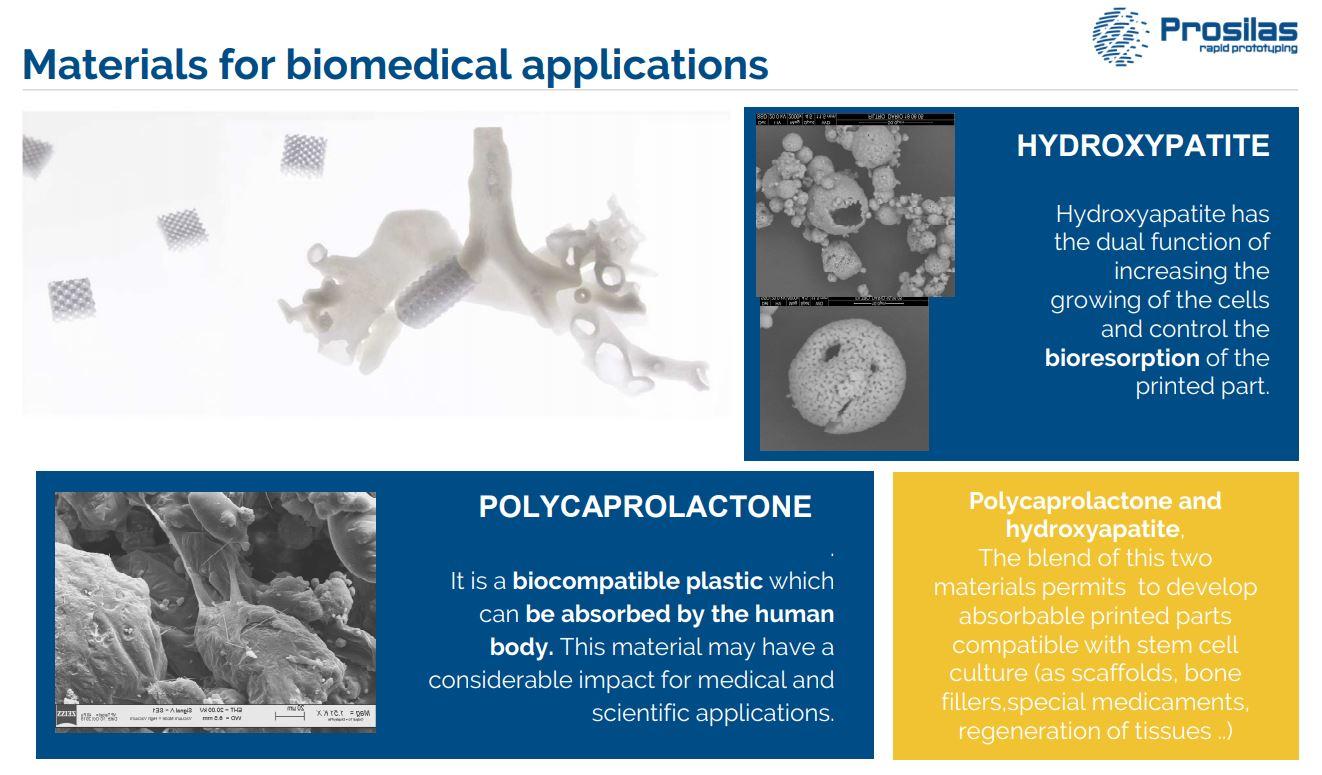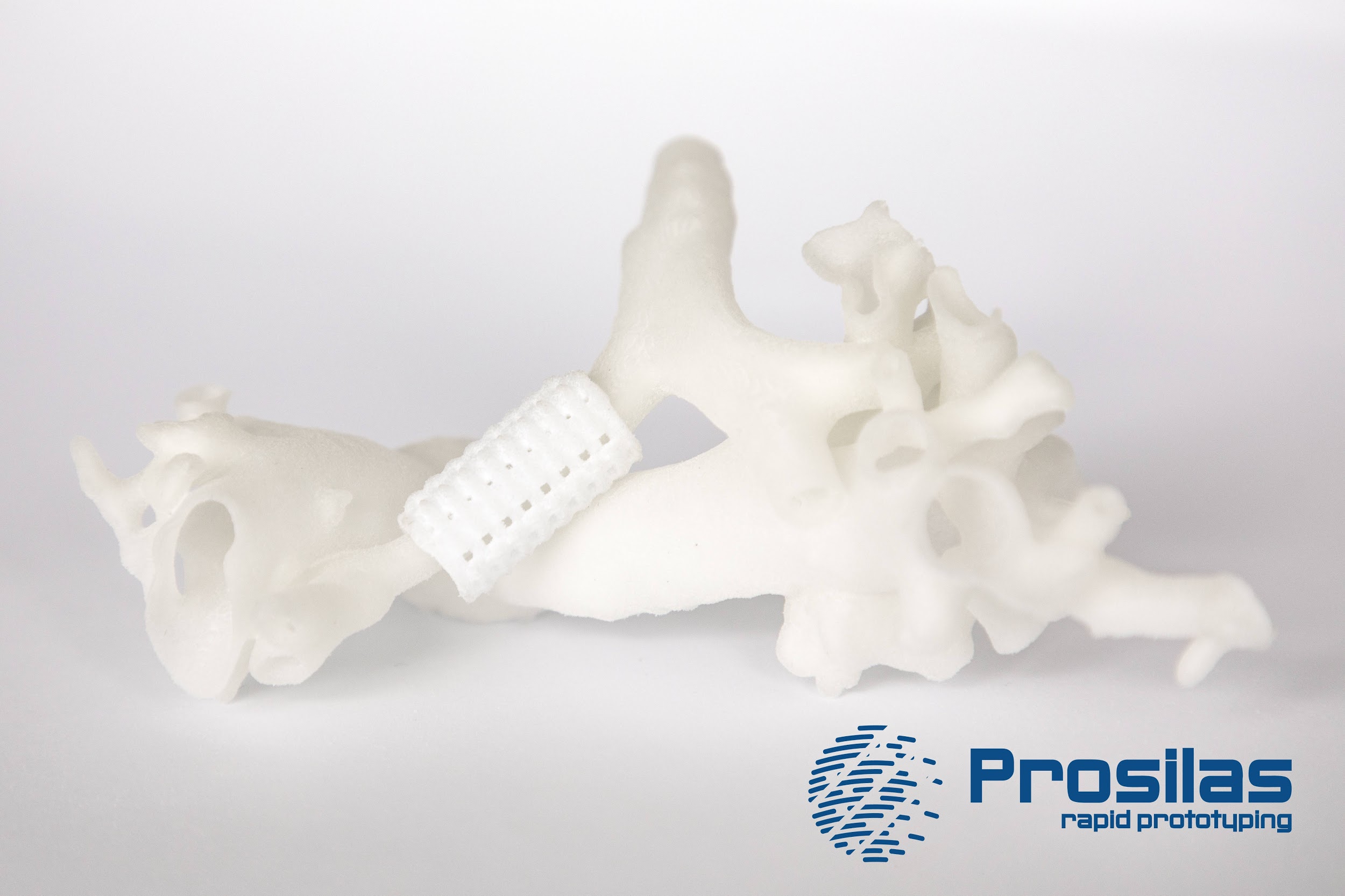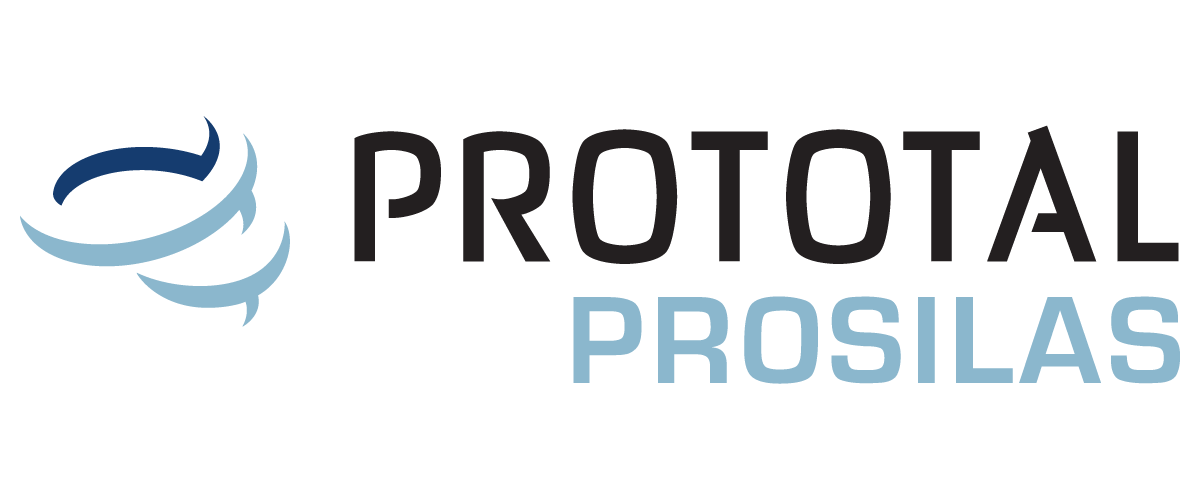Case History – Medical
Application in the Medical sector realized through the use of biocompatible and absorbable materials – Polycaprolactone – processed with 3D printing technologies and additive manufacturing SLS – Selective Laser Sintering.
Polycaprolactone – PCL: biocompatible material for 3D printing
Our team of experts has perfected a particular formulation of material capable of producing functional parts implantable in the human body.
In this specific case we produced a biocompatible and absorbable material composed of Polycaprolactone and Hydroxyapatite. The chemical composition of the material made possible the realization of a special stent that was implanted in a 5 year old child suffering from bronchcomalacia at the Bambino Gesù Hospital in Rome.
Bronchial stent in 3D printing: design and implementation
The process of producing the stent was the result of 3 years of research and development that Prosilas has faced pro-bono in order to realize the part in question. The realization was possible through a design phase and a production phase.
The design phase of the geometries was performed on the basis of a computed axial tomography (CT) showing the area to be reproduced. The acquired images were useful to create a new geometry completely customized on the patient.
The case study is the first and only in Europe.
Once the geometry was validated, hundreds of tests on 3D printing (SLS) technologies and materials were performed. The right balance between process parameters and chemical composition of the material led to the creation of the stent.


